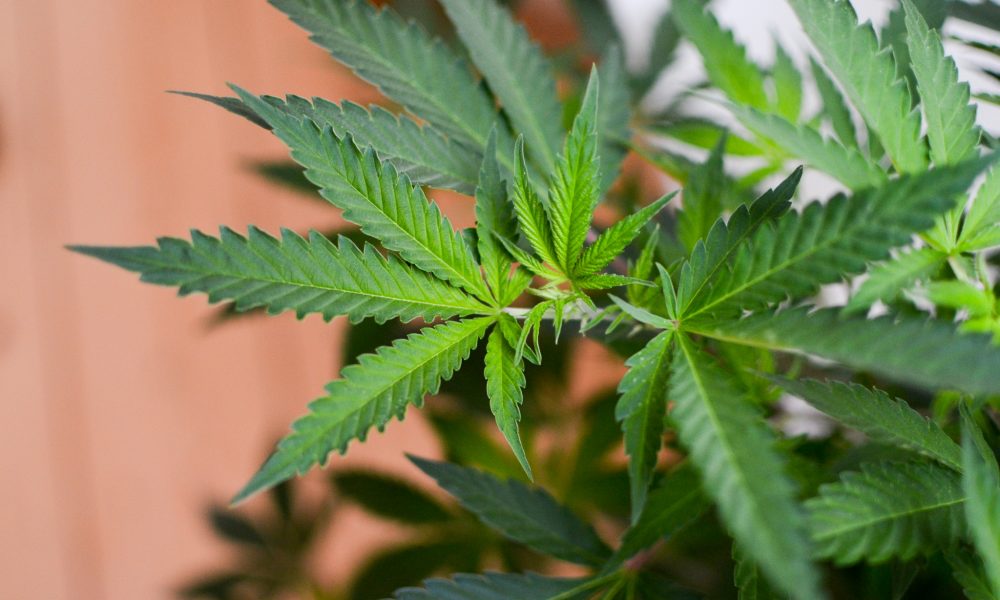“The reality of the status quo is that only the largest, most well-connected MSOs have enough capital to weather the storm if SAFE doesn’t pass.”
By Kaliko Castille, Minority Cannabis Business Association
With the 2022 midterms over and just one runoff race left to determine whether the Democrats will hold a one-vote or 50-50 majority in the Senate, all eyes (at least in the cannabis industry) are turning to the lame duck session and the hope that the Senate will finally send the Secure and Fair Enforcement (SAFE) Banking Act to President Joe Biden’s desk.
Minority Cannabis Business Association (MCBA) has been supporting the SAFE Banking Act for several years in its current form, but has also put a lot of resources over the last two years into advocating for specific amendments that would improve SAFE without scaring away any Republicans who need to be talked into supporting this bill.
This time last year, I wrote an op-ed for Marijuana Moment called “Cannabis Reformers Can Get SAFE Banking or Nothing From Congress—Which Is It?” which laid out the case that this Congress may be the last chance to get SAFE Banking (read: ANY cannabis industry legislation) passed until the next presidential administration.
In that piece last year, MCBA called not just for SAFE Banking to pass, but for it to be amended to include “protections for Community Financial Depository Institutions (CFDIs) as well as Minority Depository Institutions (MDIs), which have a history of loaning to Black and Brown communities.”
I’m here to remind folks once again that #SAFECantWait and I am proud that so many other thought leaders have similarly been pushing for an improved SAFE Banking Act to pass
Recently, a good friend of mine, Amber Senter of Supernova Women put out a thoughtful piece on Marijuana Moment that said:
“Without improvements to the bill, SAFE will likely widen the gap between the already successful white-owned MSOs and upstart entrepreneurs from the communities that suffered the most under racist marijuana law enforcement.”
Another well-respected organization, the Cannabis Regulators of Color Coalition, put out a thoughtful paper with a number of recommendations to improve SAFE, including a similar push for the inclusion of CDFIs and MDIs, among other suggestions.
MCBA will use the next few weeks to continue to push for three policies we believe will not only achieve the original goals of the bill but substantially improve it for minority entrepreneurs:
-
Inclusion of Community Development Financial Institutions (CDFI’s) and Minority Depository Institutions (MDI’s) in the safe harbor language of the bill because these are entities with a mandate and a track record of lending to minority communities. By ensuring these institutions can engage with the emerging legal cannabis industry, we will open up trusted partners who are closest with their communities to be a conduit for capital to flow.
-
Ending the discriminatory practice of excluding cannabis-related entrepreneurs from accessing the Small Business Administration (SBA), which has the ability to issue microloans ranging from $500 to $50,000 as well as the 7(a) programs that award up to $5 million in low-interest lending. Further, this would give cannabis entrepreneurs access to the national network of technical support from SBA offices ranging from Portland, Maine to Portland, Oregon and all of the legal markets in between.
-
Inclusion of the HOPE Act, which would encourage and provide resources to state and local governments to institute expungement programs for cannabis offenses. While this is not a banking-related reform, it is critical to improve the economic standing for millions of Black and brown Americans who have been held back from fully participating in the economy due to discriminatory background checks.
For years, we have fought for these improvements, both lobbying Congress as well as persuading those in the white-owned, MSO-led lobbying organizations to acknowledge credible concerns about the limited nature of SAFE as originally drafted. In fact, it was one of my predecessors who collaborated with the Small Business Committee to draft the SBA bill and testified before Congress in support of it.
And Congress in a bipartisan way—particularly Senate Majority Leader Chuck Schumer (D-NY) and Sens. Cory Booker (D-NJ), Steve Daines (R-MT) and Sherrod Brown (D-OH)—have all responded favorably.
The reality of the status quo is that only the largest, most well-connected MSOs have enough capital to weather the storm if SAFE doesn’t pass. But even in that event, the legalization movement will have taken such a step backwards, it will be bad for their bottom line as well.
Now we truly have an opportunity to create an improved “SAFE Plus” bill and it is critical that all actors work in harmony to ensure a successful vote.
MCBA recently teamed up with Minorities for Medical Marijuana (M4MM), Women Grow and Marijuana Matters to host a “SAFE Can’t Wait” town hall, and I used the football analogy that we need kick a field goal to get some points on the board before we go into halftime (a new Congress).
At this point, SAFE isn’t just about public safety and access to banking—it’s a morale boost for thousands of entrepreneurs who have put their livelihoods on the line only to be denied the basic business services any other small business would be able to access.
The current reality is already one of “haves” and “have nots”—meaning that only the most well capitalized and well connected entrepreneurs have access to banking—it’s time that we remove any barriers to basic business services for cannabis entrepreneurs and SAFE-Plus is a great place to start.
#SAFECantWait so let’s kick that field goal and get some points on the board.
Kaliko Castille is the president of the Minority Cannabis Business Association and co-founder of ThndrStrm Strategies, a digital strategy firm. Disclosure: He also supports Marijuana Moment’s work via a monthly pledge on Patreon.
Congressional Researchers Lay Out Six Key Limitations Of Biden’s Marijuana Pardons
Photo courtesy of Philip Steffan.
Read the full article here









